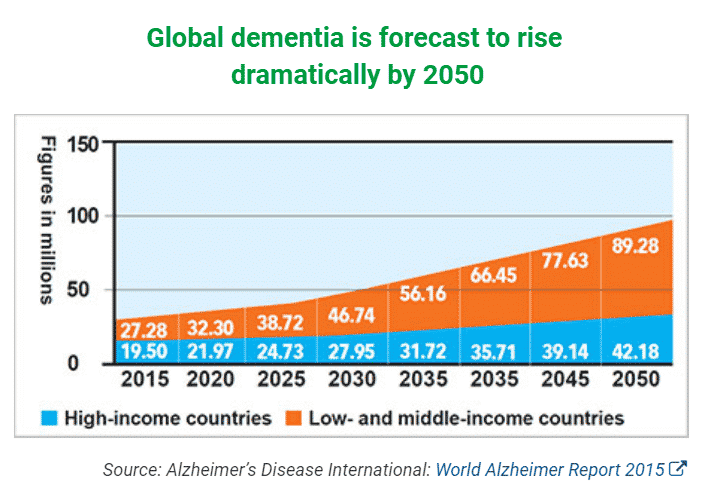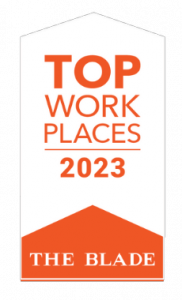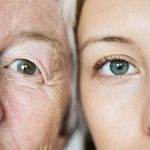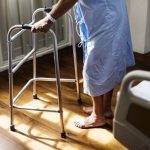 Guest Blogger: Michelle Sandwisch, APRN, FNP-C
Guest Blogger: Michelle Sandwisch, APRN, FNP-C
Michelle is an Advanced Practice Certified Nurse Practitioner licensed in Ohio. She earned a Master of Science, Family Nurse Practitioner, from Georgetown University and Bachelor of Science, Nursing, from Lourdes University. She is the owner of MyTotalBody, LLC, a personalized functional medicine practice located in Toledo, Ohio. Michelle is an active member of the Institute of Functional Medicine, and is dedicated and passionate about finding the root cause of disease and achieving optimal wellness for patients. For more information visit www.mytotalbody.me.
This article is part 1 of a 3-part series covering the impact of being a family caregiver and the importance of health prevention and self-care.
Taking Care of You: Self-Care for Family Caregivers
In a 2017 TedTalk given by neuroscientist and author of “Still Alice,” Lisa Genova playfully questions the audience asking them, “How many of you would like to live into your 80s?” She then requests that each audience member imagine their future self as an 85-year-old. Next, she innocently tells them to look at two people nearby. Then, with a small, patient-pause she bluntly states, “One of you probably has Alzheimer’s Disease,” bringing nervous laughter to the crowd. At this point, giggling a bit to herself, she utters out to the crowd, “Maybe you’re thinking, ‘Well, it won’t be me.’” At this point, the mood in the room changes as she points out … Then, OK. You are a caregiver.”
Cognitive decline and specifically, Alzheimer’s disease (AD) is one of the most significant health threats faced in the United States.1 Likewise, it also appears in other westernized countries and is becoming a worldwide epidemic as an expected 89.28 million people globally are expected to be affected with AD by 20505.
In 2018, 5.7 million Americans were living with Alzheimer’s.1 Moreover, Alzheimer’s is the 6th leading cause of death. Between 2000 and 2015 deaths from heart disease declined by 11% while deaths from AD increased by 123%. 1-in-3 seniors die with Alzheimer’s or another form of dementia and the disease kills more people than breast cancer and prostate cancer combined.
Being in the throes of caring for someone with dementia, many of you reading were not surprised by the picture painted by Lisa Genova’s illustration and likely may also be equally unsurprised by the abysmal Alzheimer’s Disease statistics.
As disheartening as these statistics are to those afflicted with Alzheimer’s disease, we must also acknowledge those providing care to them. As Lisa Genova points out, if you live to be in your mid-80s and are fortunate to not be affected yourself by Alzheimer’s disease, then you are likely going to be a caregiver.
Not surprisingly, studies consistently suggest that caregiver stress and often depression appears to negatively impact cognitive testing4. Significant predictors of decreased caregiver cognitive testing performance include: increased levels of perceived stress; loss of sleep; decreased levels of perceived social support; decreased levels of self-rated health; increased number of years of caregiving; and being female.4
In a world where current drug treatments delay our loved ones from entering a nursing home by one to two years3, and promising new drugs being researched not expected to solve this crisis any time soon, many of us believe there is nothing we can do to undo our genetic fate.
If you are feeling drained, depressed and defeated, fear not! There is much you can do to declare a war on this disease and optimize your health to play the cards in your favor.
Part 2 of this series discusses caregiver burnout and the importance of creating health.
- Alzheimer’s Association. 2018 Alzheimer’s Disease Facts & Figures. Retrieved from: https://www.alz.org/media/HomeOffice/Facts%20and%20Figures/facts-and-figures.pdf
- Genova, L. (2017). What you can do to prevent Alzheimer’s. https://www.ted.com/talks/lisa_genova_what_you_can_do_to_prevent_alzheimer_s?language=en#t-3674
- Howard R, McShane R, Lindesay J et al. Nursing home placement in the donepezil and memantine in moderate to severe Alzheimer’s disease (DOMINO-AD) trial: secondary and post-hoc analyses. The Lancet Neurologydoi:10.1016/S1474-4422(15)00258-6
- Lathan, C., Wallace, A.S., Shewbridge, R., Ng, N., Morrison, G., Resnick, H.E. (2016).
- National Institute of Health (NIH). (2018). Tackling the growing, global burden of dementia [newsletter]. NIH Global Health Matters, Volume 17 (5), p. 6. Retrieved from: https://www.fic.nih.gov/News/GlobalHealthMatters/Documents/fogarty-nih-global-health-matters-newsletter-september-october-2018.pdf

 Arista Wins Top Workplaces Award
Arista Wins Top Workplaces Award


